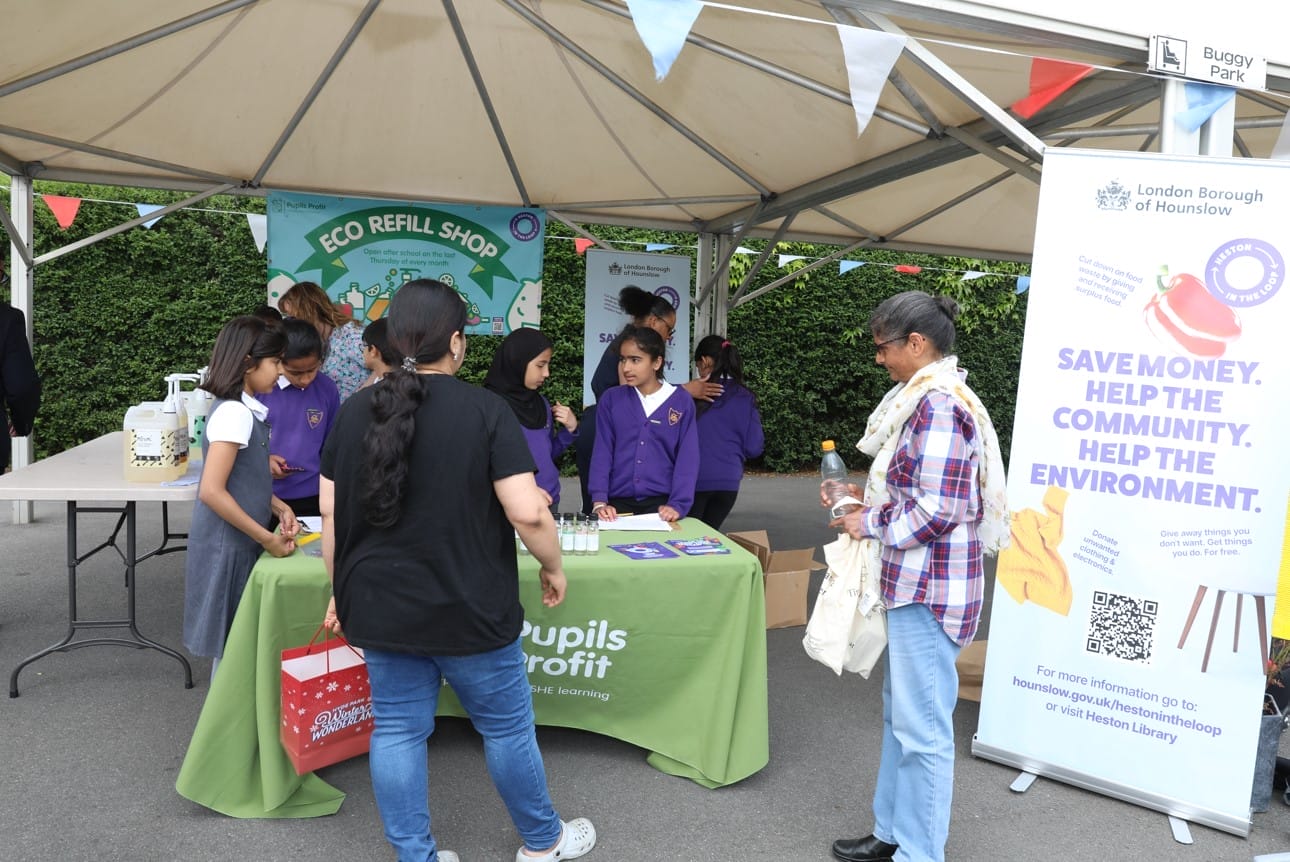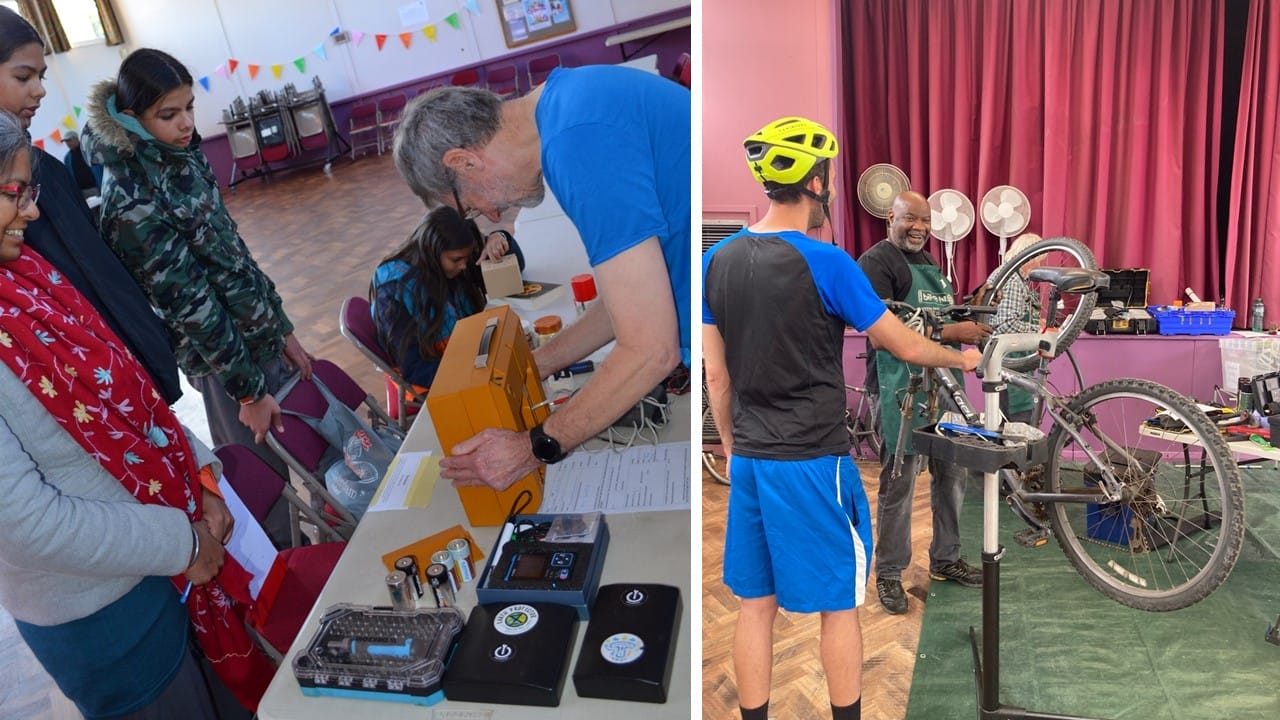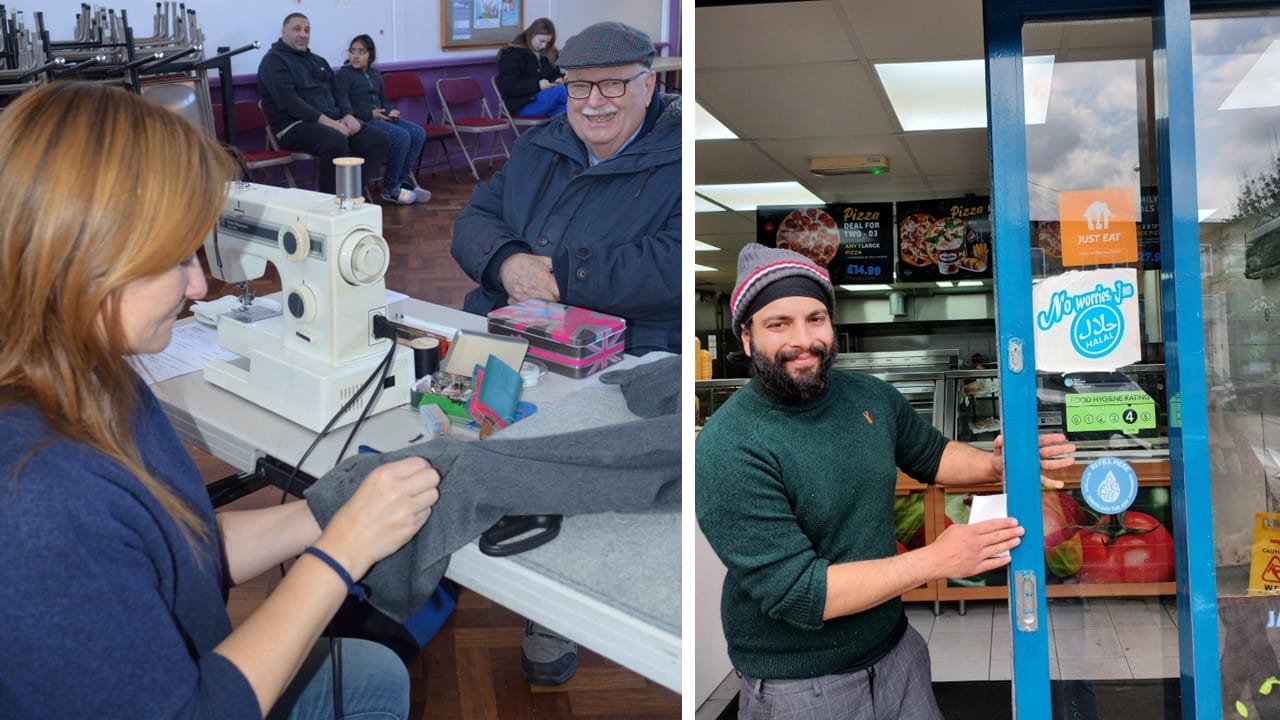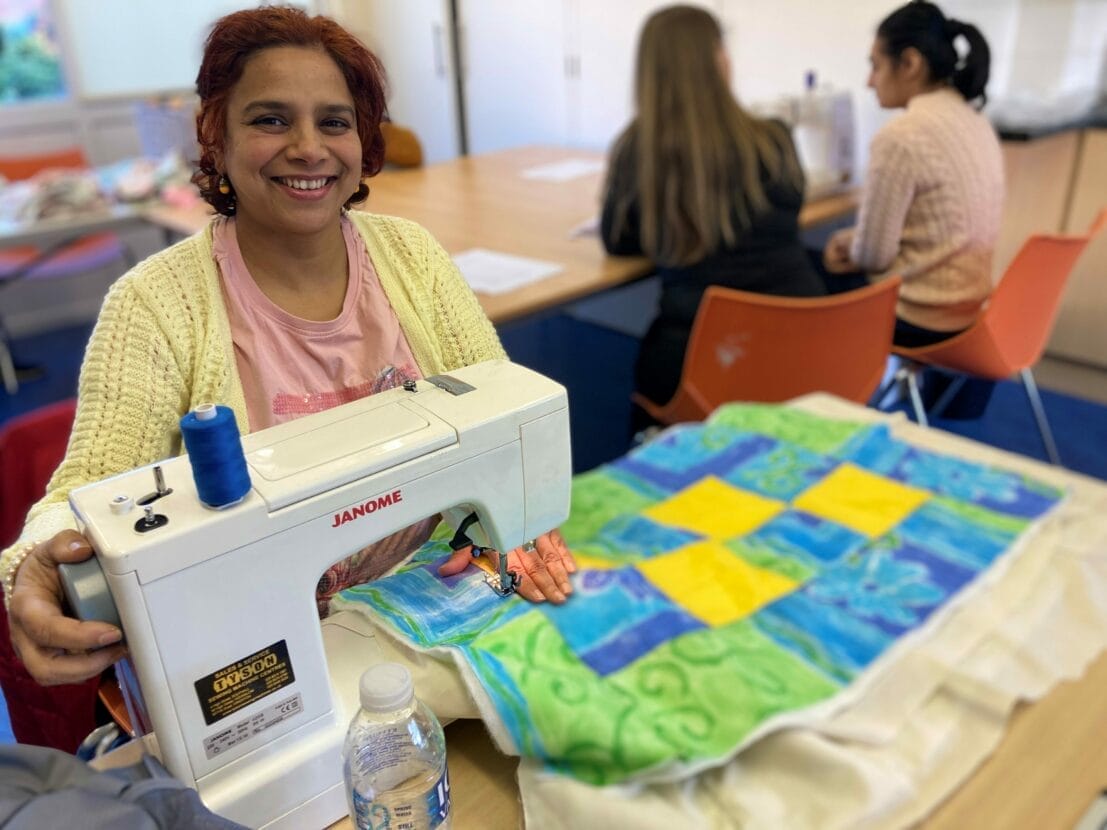There is a growing interest globally into how neighbourhoods and communities can lead the transition to a low carbon circular economy. Systemic change delivered from the bottom up, with tangible benefits for the local and global environment – ‘mighty oaks from little acorns grow’, as the saying goes.
London is a city made up of a diverse blend of towns, villages, and neighbourhoods, patchworked across London’s 32 boroughs and the City of London, and home to circa nine million residents. Outside central London, over half of London’s jobs are spread across 600 high streets, with 90% of Londoners living within 10 minutes of these high streets.
If London is going to transition to a low carbon circular city, we need to empower these communities and local economies to change their consumption habits and adopt more circular behaviour and lifestyles. Connecting community action across the city to realise and deliver change at scale.
Local authorities are the conduit to these neighbourhoods and several exciting projects and collaborations are happening across London that support communities to become circular.
These projects align with the One World Living theme of London Councils Climate Programme (OWL programme), taking a holistic approach to combating climate change through addressing consumption-based emissions caused by citizens’ everyday lifestyle choices.
“If London is going to transition to a low carbon circular city, we need to empower communities and local economies to change their consumption habits and adopt more circular behaviour and lifestyles.”
One such project is ‘Heston in the Loop’, delivered by the London Borough of Hounslow in partnership with ReLondon, and championed by the OWL programme.
‘Heston in the Loop’ is a demonstrator circular economy neighbourhood. The primary objective of the project is to introduce circular solutions that empower individuals and the community (schools, businesses and places of worship) in the Heston area to waste less and reuse, repair, share and recycle more; leading to reduced carbon consumption, increased awareness of circularity and the environment, and improved community cohesion whilst also helping residents save money and increase skills.
At the core of the project is the design and rollout of circular interventions deployed by delivery partners, which change the choice architecture available to residents, visitors and businesses in the area, increasing the prevalence of circular choices. The project aims to address consumption behaviours in relation to five key materials (plastics, food, textiles, electricals, other household items), through five key business models (using stuff wisely, using stuff again, making things well, renting instead of buying, and sharing.)

Located in the west of Hounslow, the Heston area has socio-economic challenges including high levels of deprivation, digital disengagement and prevalent areas of climate vulnerability, but a strong and active community comprised of approximately 8000 households. The development of this circular neighbourhood has a strong focus on cost savings for residents, together with building skills, opportunities to help the community and strengthen community cohesion.
Collaboration with local organisations and circular SMEs from across London aims to provide the Heston community with enhanced access to sustainable consumption choices. The project is only part way through its 12-month delivery phase, but has already proven successful, attracting more than 15 organisations to provide a range of circular services for the neighbourhood, including:
- Free fortnightly food growing and composting sessions – educating on locally sourced and zero packaged food
- Repair cafes and workshops – upskilling the community in repair of electricals, bikes and textiles, extending product life
- Eco-refill shops in schools – educating children, providing unpackaged food to the community and reducing single-use plastic waste
- Repair education in schools – teaching young people the skills to repair electricals and the importance of reducing e-waste
- Apps facilitating zero-waste sharing in businesses and the community – reducing food and other waste streams whilst supporting community cohesion and saving money
- New schemes for hard to recycle items – including candle wax from residents, businesses and places of worship and hair from local salons
- Refill scheme – reducing single-use plastic through local businesses facilitating water refill
The development of this circular neighbourhood has a strong focus on cost savings for residents, together with building skills, opportunities to help the community and strengthen community cohesion.
As well as attracting circular SMEs to deliver services in Heston, the project is also successfully developing relationships with local bricks and mortar businesses, empowering them to partner with Heston in the Loop.
The project has a successful multi-phased communications campaign, which is raising citizen awareness of Heston in the Loop and available circular activities through a range of media including traditional and digital medium.
Another key component of communications involves community outreach via local ambassadors. Heston in the Loop has successfully developed relationships with a local charity and delivered community capacity building through employing and upskilling ambassadors to promote Heston in the Loop in resident and business communities, sustainable lifestyles and more resourceful consumption, raising awareness of new circular options available to all.

Heston in the Loop has growing community interest; traditional media and in-person events have proven most successful, with digital exclusion causing lower levels of uptake with app-based solutions and social media advertising or marketing.
The project continues to develop and evolve, exploring further partnership opportunities to deliver an increasingly wide range of circular activities for the community to access. Further circular action in development includes pre-loved sari sales, clothes swaps, textile and bike repair courses and further community events.
The formal project will close in March 2024, with the aim of delivering both positive environmental and economic outcomes, and learnings that can be applied across other neighbourhoods within Hounslow and other parts of London. Beyond the lifetime of the project, it is anticipated that much of the circular activity will be self-sustaining, driven by new learnt behaviours and demand from the community. Heston in the Loop is a demonstrator initiative, from which ReLondon will produce support modules for other local authorities to follow in their own neighbourhoods.



